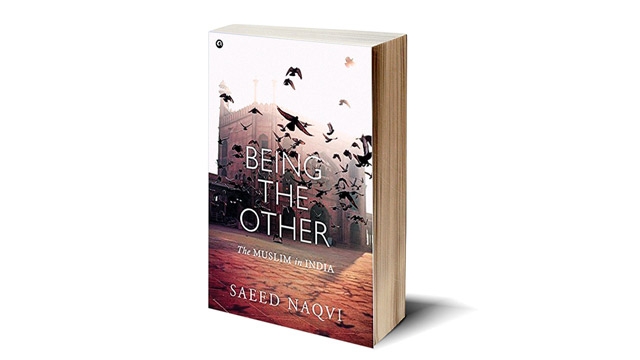Lucknow, UTTAR PRADESH / NEW DELHI :
Saeed Naqvi’s book is vital in understanding forces that have shaped the Hindu-Muslim divide, says Iftikhar Gilani
Book: Being the Other—The Muslim in India
Author: Saeed Naqvi
Publisher: Aleph
239 pages
Rs 599
A decade ago, a Hindu friend booked a vacation in Kashmir. Before leaving, he hesitantly asked if his 14-year-old son could spend time with a Muslim family. “He isn’t familiar with a Muslim family,” he confided. I arranged their stay with a government official in Srinagar who had children of the same age. The interaction, my friend told me later, had helped clear cobwebs not only from his son’s mind, but from his as well.
In Being the other…, Saaed Naqvi recounts a similar experience. In Allahabad University, he asked the audience whether the Hindus among them had visited a Muslim home. No one had, even as a few murmured about their fathers knowing Urdu or Persian or that their mothers cooked chicken or mutton. The book is a memoir and exploration of various deliberate and inadvertent acts that have contributed to this ‘othering’ of the Muslims in India.
The author, a senior journalist, blames both the Congress and the BJP for this yawning gulf between the Hindu-Muslim communities. “Partition, in a way, was the gift the Congress gave to the Hindu right, which in the fullness of time, is today’s Hindutva,” Naqvi says. From then on, it has been a slow and steady decline for India’s 180 million Muslims.
Why has this happened?
Islam’s experience of Hindu civilisation dates back 14 centuries. But to understand Muslims and Islam, Indian scholars rely on Americans whose exposure doesn’t go beyond half a century.
And security agencies make it worse when they pick up innocent Muslims on dubious charges, forcing the community to retreat into a shell. “With every such arrest, more members of the community turn against the State and may even be persuaded to join militant groups or take to arms. If injustice becomes the law, resistance becomes duty,” the author says.
But in some places, Naqvi falls in with the ill-informed discourse of some scholars. He mentions, for instance, that Sir Syed Ahmed Khan set up the Mohammedan Anglo Oriental College (now Aligarh Muslim University), for ashraf (upper caste) Muslims alone, but fails to explain how a Hindu, Ishwari Prasad, was the first graduate of this college. He also joins the chorus to heap scorn on Wahhabism, but doesn’t mention that India’s first education minister, Maulana Abul Kalam Azad, whom he praises, belonged to this school of thought.
Though there is room for improvement, this book is an essential read for those interested in understanding the forces that have shaped the Hindu-Muslim divide and its consequences.
source: http://www.dnaindia.com / DNA / Home> News> Lifestyle News / by Iftikhar Gilani / DNA, Mumbai – Sunday October 16th, 2016









